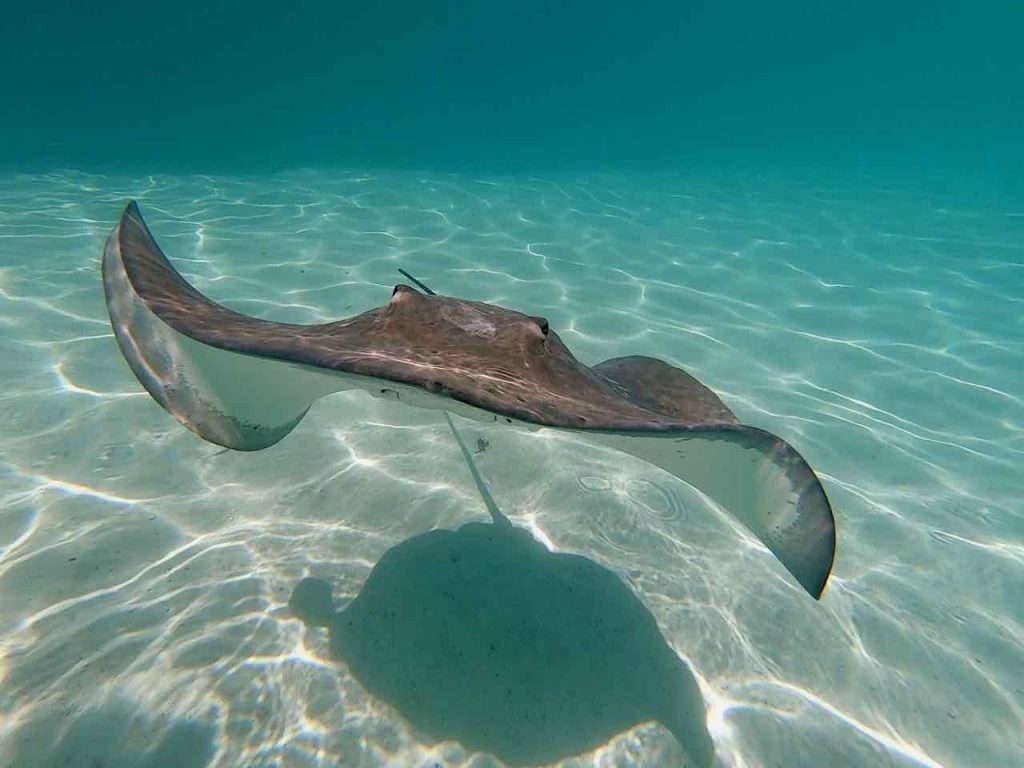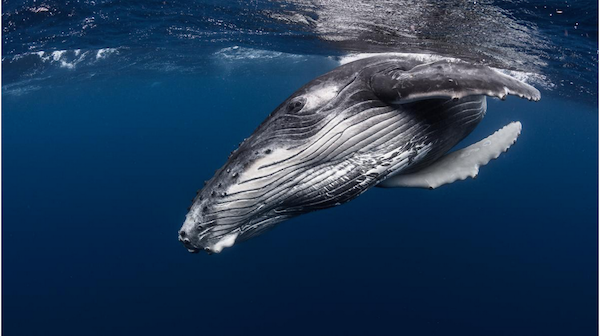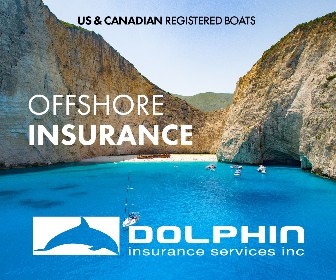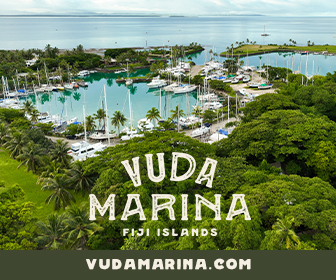French Polynesia: World’s Largest Marine Sanctuary to be Expanded
The largest Marine Sanctuary in the world is set to expand by 2030, celebrating 20 years of wildlife protection and industrial fishing bans in The Islands of Tahiti.
Published 2 years ago
For more than 20 years, French Polynesia, also known as The Islands of Tahiti, has quietly served as the home to the largest marine sanctuary in the world and it is set to expand to reach 350,000 square miles by 2030.
The Islands of Tahiti are composed of more than 118 islands in total, stretching across five archipelagos. These islands have long stood as an unassuming haven for dozens of threatened species of cetaceans, sharks, sea turtles and more. The expanded territory will also have a goal of specifically protecting corals, a critical species which provides more than half of the oxygen on the planet.


- A ray in Moorea, French Polynesia.
French Polynesia has forbidden any technique other than line fishing, and its Exclusive Economic Zone (EEZ) is reserved for the Polynesian fishing fleet. No fishing license has been, or can be, sold outside of French Polynesia and industrial fishing is strictly banned.
Rahui, the Tahitian ancestral practice which imposes temporary bans on the harvesting or fishing of certain marine or terrestrial species to ensure their preservation and renewal, is still practiced today. The announcement of the marine sanctuary expansion – named Rahui Nui (Nui meaning “big or great” in Tahitian) – honors the spirit of this ancient practice.
“The sea is the Marae, the ultimate sanctuary and splendor of the world. It is a symbol of mystery – a symbol of respect – because it awakens the consciousness of space,” said Edouard Fritsch, President of French Polynesia. “The protection and sustainable management of our Ocean are rooted in our traditions and values. This is our contribution to the transmission of this whole heritage to our children.”
This tradition of strong environmental and cultural protection has made The Islands of Tahiti one of the most sought after destinations for sustainable travel and slow tourism.
Key Dates:
- 1996 – Ban on any fishing technique other than line fishing, and its Exclusive Economic Zone (EEZ) is reserved for the Polynesian fishing fleet. No fishing license has been sold outside French Polynesia, and industrial fishing is strictly banned.
- 2002 – Establishment of the marine mammal sanctuary protecting whales and dolphins.
- 2012 – Establishment of the largest shark sanctuary in the world in French Polynesia at 4 4.7 million square kilometers.
- 2021 – Capacity limits on cruise ships to those of less than 3500 passengers to protect sensitive marine environments and the visitor experience.
The marine sanctuary will cover half a million square kilometres in the south-east of the territory and is to be known as Rahui Nui. It is home to 21 species of sharks, 176 corals and 1,024 species of fish.


- Photo (c) Tahiti Tourism
The Government of French Polynesia is also committed to restricting fishing around more than 100 islands in 500,000 square kilometres, to traditional methods only by the end of 2022, which will curb industrial fishing by about 20 percent.
In order to protect coral ecosystems, the French Polynesian government also wants to create mandatory anchorage zones.
French Polynesia’s President Fritch said the corals represent an area of 15,000 square kilometres, or about a fifth of the world’s atolls and together all the projects cover a area of about one million square kilometres, which is approximately twice the size of France.
…………………………………………………………………………………………………………………………………………
Related News:
Largest Marine Sanctuary in the World to Expand (Tahiti Tourism)
French Polynesia Announces Huge Marine Sanctuary (Radio New Zealand)
………………………………………………………………………………………………………………………………………
Related Links:
Related to following destinations: Australs, French Polynesia, Gambiers, Marquesas, Other Atolls (French Polynesia), Society Islands, Tahiti, Tuamotus
Related to the following Cruising Resources: Environment, General, Pacific Crossing, Routing






